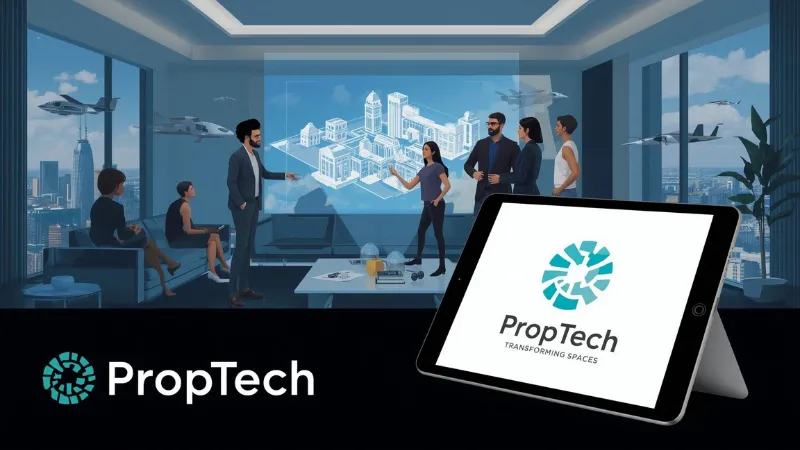
Technology continues to reshape industries across the world, influencing how businesses operate, serve customers, and remain competitive. From artificial intelligence to blockchain, innovations that once seemed futuristic are now becoming vital components of everyday business strategies. Local industries, in particular, are embracing new technologies to improve efficiency, enhance customer experiences, and adapt to evolving market demands.
Artificial Intelligence and Automation
Artificial intelligence (AI) and automation are at the forefront of technological transformation. Businesses across multiple sectors are adopting AI-powered tools to streamline processes and reduce operational costs. Local manufacturing plants use predictive maintenance systems to anticipate equipment issues before they occur, preventing costly downtime. In retail, AI is helping small stores analyze customer data to personalise promotions and predict inventory needs.
Automation is also changing the service sector. Restaurants and cafes use automated ordering systems and chatbots to manage customer interactions efficiently. These technologies allow local businesses to focus on higher-value activities, such as improving product quality or building stronger customer relationships.
The Internet of Things (IoT) in Local Operations
The Internet of Things (IoT) connects devices, sensors, and systems to share real-time data. Local industries benefit significantly from IoT integration, particularly in logistics, agriculture, and energy management. Farmers use IoT sensors to monitor soil conditions, weather patterns, and crop health, allowing for more precise resource use. In logistics, IoT tracking devices help small delivery companies optimise routes and reduce fuel consumption.
RECOMMENDED FOR YOU

Real Estate, Risk, and Regulation: Lessons from the Florida Legal Frontlines
Team SR
Oct 4, 2025
Smart city initiatives also rely on IoT technologies to improve transportation and waste management systems. Local governments use IoT data to monitor air quality, control lighting, and manage public utilities more effectively. This integration enhances sustainability while reducing operational costs.
Blockchain for Transparency and Security
Blockchain technology has moved beyond cryptocurrency and is now revolutionising how local businesses handle transactions and data security. Small suppliers and producers use blockchain to create transparent records of their supply chains. This builds trust among customers who value traceability, particularly in industries such as food, fashion, and pharmaceuticals.
Blockchain also offers secure and tamper-proof data management systems. Local financial service providers use this technology to improve transaction accuracy and prevent fraud. The decentralised nature of blockchain ensures that data remains consistent and accessible, even across multiple platforms or partners.
Augmented and Virtual Reality in Customer Engagement
Augmented reality (AR) and virtual reality (VR) are transforming how businesses interact with customers. Local estate agencies use virtual tours to help potential buyers explore properties remotely. Retail stores implement AR apps that allow shoppers to visualize products before purchasing, improving satisfaction and reducing returns.
In education and training, AR and VR provide immersive experiences that enhance learning. Local training centres and vocational schools use these tools to simulate real-world scenarios, improving student engagement and retention. The combination of realism and interactivity helps people develop skills faster and more effectively.
Data Analytics Driving Local Decision-Making
Data analytics has become an essential element of business strategy. Local enterprises use data to identify trends, forecast demand, and make informed decisions. Restaurants analyse customer preferences to adjust menus and pricing. Healthcare providers track patient outcomes to improve service quality. Even small retail shops use analytics to optimise inventory and pricing strategies.
Access to actionable insights is no longer limited to large corporations. With cloud-based analytics tools, small- and medium-sized enterprises can now afford the same level of intelligence as major players. Resources such as Click insights provide valuable guidance on how data-driven approaches can enhance performance across industries.
Sustainable Technology and Green Innovations
Sustainability has become a central focus for modern businesses. Local industries are investing in eco-friendly technologies to reduce waste and energy consumption. Renewable energy solutions, such as solar panels and wind turbines, are increasingly common among local manufacturers and service providers.
Technology also helps track environmental performance. Smart meters monitor electricity use, while digital platforms manage recycling processes. These innovations not only reduce environmental impact but also improve profitability by lowering operating costs.
The Road Ahead for Local Industries
The ongoing wave of technological innovation is creating new opportunities for local industries to grow and compete on a global scale. Businesses that embrace emerging technologies gain efficiency, agility, and a stronger connection with their customers. As digital transformation continues, the ability to adapt and adopt these tools will define long-term success.
By understanding and integrating new technologies, local industries can position themselves for sustainable growth and a more resilient future. The transformation has already begun, and those who act now will shape the next generation of local economic progress.


 Follow us
Follow us Follow us
Follow us














